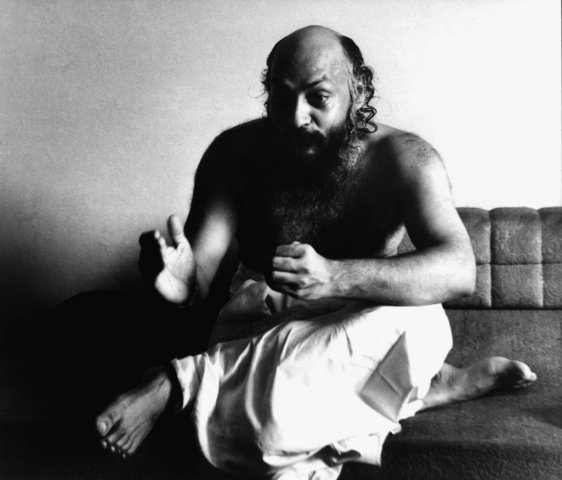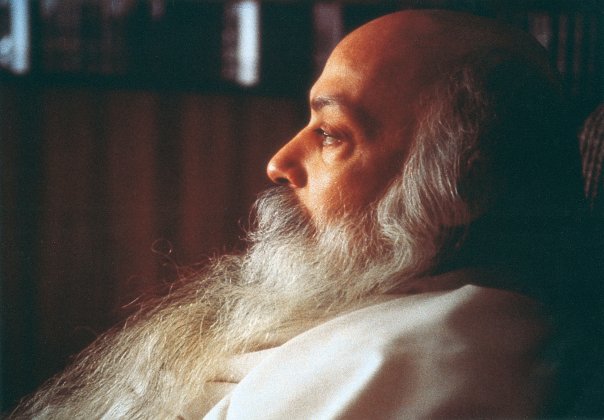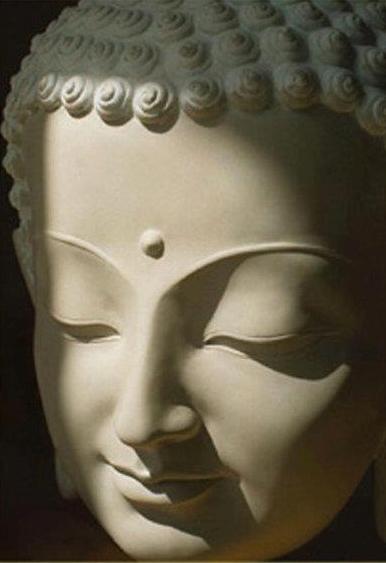Osho Quotes
- Look at the fact that desiring creates misery. If you don’t desire, there is no misery. So drop desiring. And don’t create a new desire; simply drop desiring. Don’t create a spiritual desire. Don’t say, `Now I am going to seek God. Now I am going to find this and that. Now I am going to realize the truth.’ Don’t create a new desire. If you create, it shows you have not understood your misery.
- Take meditation as a play, a fun, enjoy it, and then the very quality changes. Then it is not something you are doing as a cause to gain some effect. No, you are enjoying it here and now. It is the cause and it is the effect, both. It is the beginning and it is the end.
- If the ego is there, you are closed — for love, for meditation, for God. So first try to be more sensitive, more vulnerable, open, allowing things to happen to you. Only then can the divine happen, because that is the last happening. If you cannot allow ordinary things to happen to you, how can you allow the ultimate? Because when the ultimate happens to you, you will be no more. You will be simply no more.
- How can you love when you are closed? You live in your prison, I live in my prison, and whenever we meet, only the prison walls touch each other and we are hiding behind. We move in our capsules: the capsules touch each other, the bodies touch each other, but deep down we remain isolated.
- The ego is a very subtle braggart. Be aware of it. It can deceive you. And it can use words, it can verbalize things. It can verbalize anything, even nirvana.The ego is a very subtle braggart. Be aware of it. It can deceive you. And it can use words, it can verbalize things. It can verbalize anything, even nirvana.
- Look back! The ego promised many things, and nothing has been achieved through it. All the promises have fallen down. But you never look back, you never compare. When you were a child there were promises for youth: life will be there when you are young. Everyone was saying it, and you also were hoping that when you become young, all that was to happen would happen. Now those days have passed, the promise remains unfulfilled, but you have forgotten. You have forgotten the promise, you have forgotten that is has not been fulfilled. It is so painful to look at it that you never look at it.
- The divinity is not a future. Your divinity is the present. It is here and now.
- Emptiness is your innermost center. All the activity is on the periphery; the innermost center is just a zero. All the manifest is on the periphery; the deepest core of your being is the unmanifest vacuum. Buddha has given it a name — shunyata. It means nothingness or emptiness. That’s your nature, that’s your being, and out of that nothingness everything comes, and everything goes back to it.
- If you move deep in meditation it will happen. Fear will disappear, because you know yourself endlessly. You go on spreading endlessly — back into the past, forward into the future, and this very moment, this present moment, in the depth of it you are there. You simply are — you never begin, you are never going to end.
- Meditation is the deepest sleep. It is total relaxation plus something more; you are totally relaxed and yet alert. Awareness is there. Total sleep with awareness is meditation. Fully alert, things are happening but you are not resisting, not fighting, not doing. The doer is not there. The doer has gone into sleep. Only a witness is there a `non-doer alertness’ is there. Then nothing can disturb you.
- This word `individual’ is beautiful: it means indivisible. Right now as you are, you are divided. You are only many fragments clinging together anyhow without any center being there, without any master in the house, with only servants. And for a moment any servant can become the master.
- If you are more sensitive, you will be detached; or, if you are detached, you will become more and more sensitive. Sensitivity is not attachment, sensitivity is awareness. Only an aware person can be sensitive. If you are not aware you will be insensitive. When you are unconscious you are totally insensitive — the more consciousness, the more sensitivity. A Buddha is totally sensitive, he has optimum sensitivity, because he will feel and he will be aware to his total capacity. But when you are sensitive and aware you will not be attached. You will be detached, because the very phenomenon of awareness breaks the bridge, destroys the bridge, between you and things, between you and persons, between you and the world. Unconsciousness, unawareness, is the cause of attachment.
- Meditate, become more sensitive, and take it as a criterion that you will go on becoming more and more detached. If you feel that attachment is growing, then you are erring somewhere in your meditation. These are the criteria. And to me, attachment cannot be destroyed and detachment cannot be practised. You can only practise meditation — and detachment will follow as a consequence, as a by-product. If meditation really flowers within you, you will have a feeling of detachment. Then you can move anywhere and you will remain untouched, unafraid. Then when you leave your body, you will leave it unscratched. Your consciousness will be absolutely pure, nothing foreign has entered into it. When you are attached, impurities enter into you. This is the basic impurity: that you are losing your center and somebody else or something else is becoming your center of being.
- Sannyas and meditation are enough, nothing more is needed. Sannyas changes your whole vision of reality. It helps you to drop all ritualistic religion, all serious religion. It helps you to become non-ritualistic, non-serious, it helps you to become playful, it helps you to take life as fun. It helps you to rejoice in existence, and through that rejoicing comes real renunciation.
- Sannyas means seeing how you are caught in prisons, why you are caught in prisons. And the very seeing is enough, because nothing is really holding you in the prison except your own fears; the fear of the unknown, the fear of the unfamiliar, keeps you huddled together like sheep in the crowd. And there are many crowds: Hindu, Mohammedan, Christian, Jewish — different crowds. And people are clinging to each other; they are afraid of being lost in aloneness. Meditation teaches you aloneness.
- Sannyas helps you to get rid of the non-essential — in the words of the DESIDERATA — sannyas helps you to negate the non-essential, to drop the non-essential, and meditation helps you to FIND the essential, to discover the essential. And these are the only two things that are needed, nothing else is needed. Withdraw your energy from the non-essential and let it move into the direction of the essential. Discover your being, your individuality In that authentic experience is the miracle.
- Surrender is only a way to freedom. It takes away only that which you have not got in the first place and it gives you that which you have already got, but have forgotten all about.



